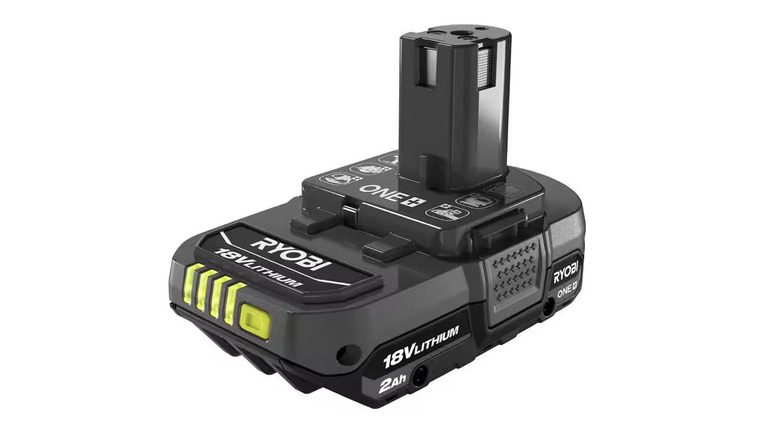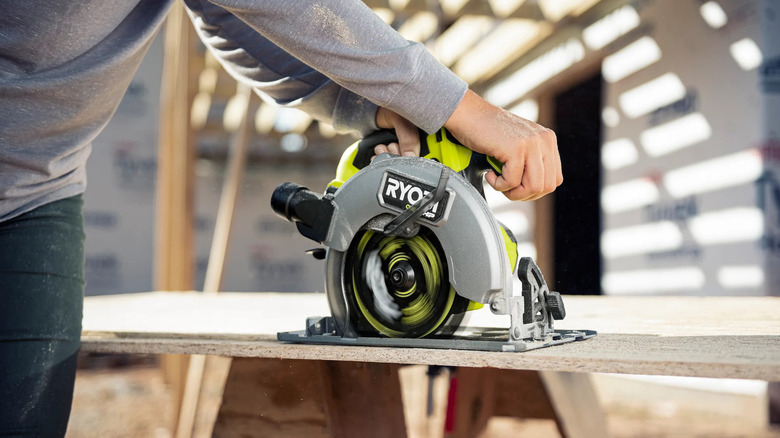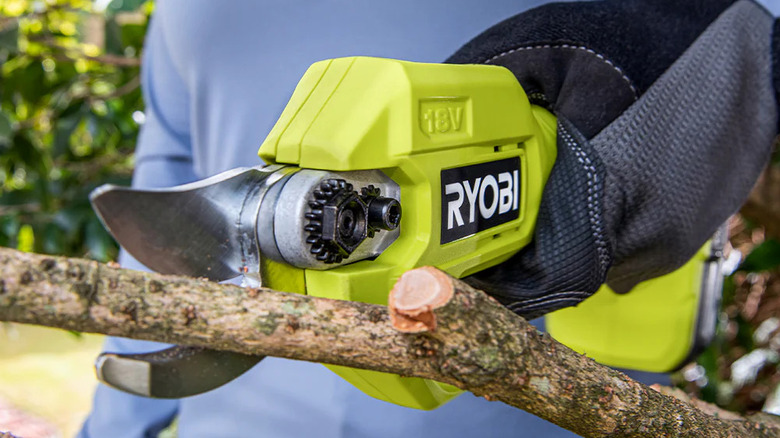Is Ryobi's 18V 2Ah Battery Worth Buying? Here's Which Tools It's Good For
We may receive a commission on purchases made from links.
Ryobi's ONE+ and ONE+ HP battery frameworks encompass quite a few different 18V battery packs of various shapes and sizes. The entire point of the system is that any of these battery packs, big or small, can fit into the same Ryobi power tools and juice them up. If all of these packs can power the same tools, then are they all exactly the same? Well, not quite.
Take, for example, the Ryobi 18V ONE+ 2Ah lithium high-performance battery pack. With a name like that, it certainly sounds like top-shelf performance, and it has a 4.4 out of 5 user rating on Home Depot to boot. However, while this particular battery is not bad by any means, that doesn't mean it's a one-size-fits-all solution for all of your Ryobi power tool needs. The defining factor can be found in that name: the 2Ah rating. This particular battery may be high performance, but that low amp-hour rating means it can only really sustain itself for a short time, making it better for smaller, quick-use tools than giant, power-hungry implements.
2Ah batteries have lower capacity than other battery types
The "Ah" abbreviation in relation to batteries stands for "amp-hours." When you plug a battery into some kind of electronic device, it doesn't just start pouring power into it at an uncontrolled rate. Power is supplied by the battery at a very particular level and rate based on what the battery's components are capable of. So, for example, if a battery has a 2Ah rating, that means it's rated to deliver 2 amps of current per hour. This brings us back to Ryobi's 18V 2Ah battery pack. As the name implies, it can deliver 18V of power at two amps of current per hour. If you plugged that battery pack into a tool that only needed one amp, you'd get two hours of continuous usage.
However, there are two potential problems here: First, while Ryobi does pride itself on its battery tech like the Cool-Core design, not every tool is going to have the same power needs, even if it's part of the ONE+ system. Power-hungry tools like a large chainsaw will naturally consume more power than something smaller, reducing the battery's overall capacity. In fact, Ryobi's ONE+ chainsaw can burn through a full charge on a 1.5Ah battery in about 32 cuts. The other problem is that, while the 18V ONE+ 2Ah battery is equipped with optimizing technology, there are simply better batteries out there, capacity-wise. The ONE+ system's batteries go as high as 12Ah, while the 2Ah models are the second smallest available.
Ryobi's 18V 2Ah battery is better for small tools and quick jobs
All of this isn't to say that Ryobi's 18V ONE+ 2Ah battery is a bad product; it's not. Rather, the important thing is finding the right battery for your Ryobi tool, which includes being realistic about what kinds of tools and work you're going to get up to if you plan on buying and using one. Because the 2Ah battery can't deliver as much power for as long as its contemporaries, it's best saved for either short jobs or smaller, less power-hungry tools.
You could put the battery into something hefty like a circular saw or leaf blower if you only need to do a couple of minutes of continuous work. Even if the tool is a little hungry, as long as you don't try to get too much sustained usage out of the battery, you should be able to finish your work before it runs dry.
A more economical choice would be to save this particular battery pack for smaller workshop tools or implements that only need to receive quick shots of power rather than continuous usage. For example, Ryobi's pruning shears only draw power when the trigger is pulled and are only intended for small-scale gardening work like limbing and pruning trees. A tool like that could get the most out of a 2Ah battery's capacity, and that battery would be easier to carry around on a small tool compared to a giant 12Ah one.


